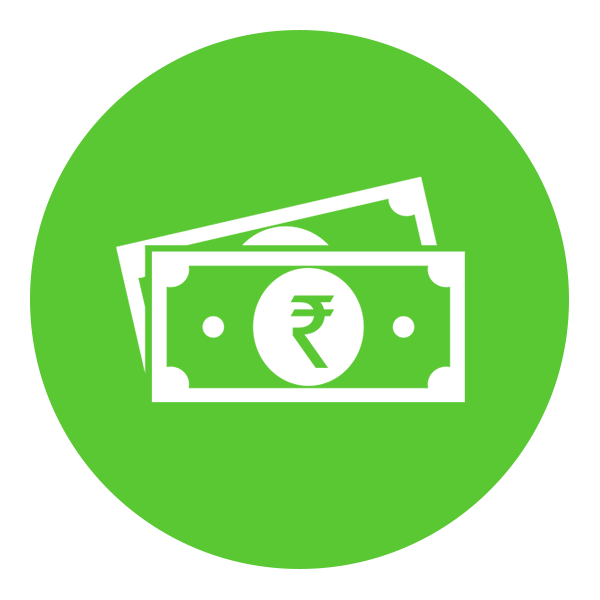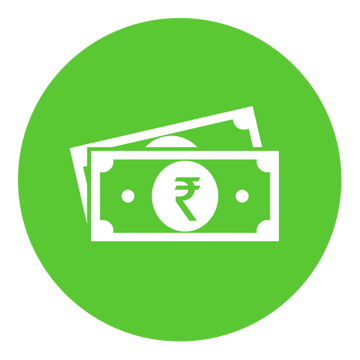Urban Poverty in India [Hardcover]
Regular price
₹ 837
Sale price
₹ 837
Regular price
₹ 900
Unit price
Save 7%
Tax included.
| Author | Seepana Prakasam |
| Language | English |
| Publisher | Gyan Books |
| Pages | 251 pp |
| ISBN | 978-9351282938 |
| Book Type | Hardbound |
| Item Weight | 0.576 kg |
| Dimensions | 3*X14*X23* |
![Urban Poverty in India [Hardcover]](http://rekhtabooks.com/cdn/shop/products/1111008615968.jpg?v=1680169858&width=360)
Urban Poverty in India [Hardcover]
Product description
Shipping & Return
Offers & Coupons
ABOUT THE BOOK:- The book ' URBAN POVERTY IN INDIA' is the synthesis of Economics, Sociology, Social Work and Public Administration. It is useful to academia, students, policy makers, social workers & the public, to understand the dynamics of urban poverty in India, and gain in-depth knowledge of the status of implementation & impact of the major anti-poverty programmes in India, such as Public Distribution System, Mid-day Meal Scheme & Rashtriya Swasthya Bima Yojana. This volume has an integrated approach to the subject, based on advanced level of post-doctoral research, and analysis backed by field level data. Though good literature is available on the incidence of rural poverty; but the studies on urban poverty are rare, while the number of urban poor are increasing in recent times. Hence this book will certainly bridge the gap. ABOUT THE AUTHOR:- Dr. Seepana Prakasam, selected by the Union Public Service Commission New Delhi, is working as Associate Professor at the Post Graduate Department of Economics in Govt. College for Girls Sector -11 Chandigarh. He is having 25 years of teaching experience, done Post-Doctoral Fellowship (PDF) from Panjab University Chandigarh, completed Faculty Development Programme in Management at IIM Indore. He has authored 4 books, about 30 of his research papers have been published in national and international refereed journals and 15 papers have been published in edited books. He presented research papers in more than 50 national and international conferences. 10 M. Phil degrees were awarded under his supervision and he is guiding PhD scholars. He has completed 3 UGC/ ICSSR Research & Development projects, he is Member Board of Examiners, Member Board of Studies, Vice President of the Chandigarh Economic Association, and has been elected twice as executive member of the Indian Economic Association. He is a visiting scholar at the Thammasat University Bangkok, has delivered lectures in foreign universities, besides being invited as Fellow in Economic Science-Institute for Advanced Studies and Research (Oxford- Cambridge-Harvard Foundation (OCHF) at Chennai. He has worked on behalf of the Indian Council of Cultural Relations (Ministry of External Affairs Govt. of India), as Chair Professor at the University of Nairobi, Kenya (Africa). CONTENTS:- Foreword . 9 Preface . 11 Acknowledgements . 15 List of Tables . 17 List of Figures . 23 Acronyms . 25 1. Introduction . 29 • Global Poverty • Global Urban Poverty • Poverty in India • Urban Poverty in India • Status of MPCE in Urban Areas • Rural-Urban Migration • Urban Informal Employment • The Magnitude of Informal Employment • The Vulnerable Employment • Casualisation of Employment • Poverty Reduction in India • Why Poverty Should be Removed? • Anti-Poverty Strategies • Anti-Poverty Measures • Reservation System • Public Distribution System • Anganwadi Scheme • Mid-Day Meal Scheme • Mahatma Gandhi National Rural Employment Guarantee Scheme (MGNREGS) • Rashtriya Swasthya Bima Yojna (Health Insurance) • Right to Information Act, 2005 • Social Security • Financial Inclusion • The Other Programmes • The Recent Anti-Poverty Measures • Pradhan Mantri Jan-Dhan Yojana (PMJDY) • Atal Pension Yojana (APY) • Pradhan Mantri Suraksha Bima Yojana (PMSBY) • Pradhan Mantri Jeevan Jyoti Bima Yojana (PMJJBY) • Skill India, 2015 • Pradhan Mantri Awas Yojana, 2015 • Problems in Removing Poverty • Problems in Implementing Anti-Poverty Measures • Conclusion. 2. Problems of the Urban Poor . 65 • Introduction • Methodology • Theoretical Base • Discussion • Literacy and the Level of Education • Social Groups • Religious Affiliation • Nationality/State of Origin • Size of the Household • Owning of Cultivable Lands • Household type • Occupation Pattern of the Respondents • Monthly Income • Annual Income from all the Sources • Incidence of Poverty among the Respondents • The incidence of poverty among the respondents in Chandigarh (Tendulkar Methodology) • Monthly Savings • Level of Indebtedness • Source of Borrowing • Reasons for Borrowing • Infrastructure and Amenities • Quality of Dwelling Units • Number of Dwelling Rooms • Ownership Status of Dwellings • Source of Drinking Water • Access to Household Assets • Type of Sanitation in Use • Source of Cooking Fuel • Conclusion. 3. Public Distribution System . 95 • Introduction • Public Distribution System in Chandigarh • Direct Benefit Transfer System • Discussion • Methodology • Geographical Coverage • Work Status of Sample Respondents (Head of the Household) • Economic Classification of Sample Respondents (PDS) • Type of Ration Cards and Entitlements of PDS Items • Monthly off-take of Wheat • Monthly off-take of Rice • Monthly offtake of Sugar • Monthly off-take of Kerosene Oil • Monthly Waiting Time at FPS • Monthly Time Spent (Waiting and Travel) • Monthly Number of Kms Travel • Number of Days Distribution of Ration • Fair/Unfair Trade Practices • Cash Transfers vs Distribution of PDS Items • Quality of PDS Commodities • Measuring Gross and Net Impact • Benefit Net of Opportunity Cost • Travel and Transport Charges • Benefit Net of Travel and Transport Charges • Net Benefit, Net of Opportunity Cost of Time for Travel and Transport and Expenditure on Travel and Transport • Monthly Subsidy Loss and Gain Trade-off • Fair Price Shops • The Problem of Ration Cardlessness • Conclusion. 4. Mid-day Meal Scheme . 127 • Introduction • The Revised Cooking Cost Rates w.e.f. 1-7-2016 • MDMS Infrastructure in India • Status of the Scheme in Chandigarh • Process of Scheme Implementation • Coverage of Children/Working Days • Funds Allocation and Expenditure • Type of Food Served • Systems to Ensure Transparency, Accountability • Cooking Cost • Monitoring • Capacity Building • Discussion • Methodology • Geographical Distribution of the Respondents • Work Status of Respondents (Parents) • Parents’ Permission to Their Wards to Take MDM • Parents Perceptions on Health Consequences of MDM • Parents, Preference of MDM vs. Cash Transfer • Perceptions of Beneficiary Children • Gender of the Respondent Children • Children Levels of Schooling • Food Menu, Before Going to School • Weekly Number of Days Consumption of MDM • Adequacy of Quantity of MDM • Status of Consumption of the Quantity Served • The Status of Demand for More Quantity of MDM • Habit to Bring Lunch to the School • Habit to Eat at Home after Coming Back from School • Recipe Fond off by the Children from MDM Menu • Recipe Don’t Like to Eat • Habit to Bring MDM to Home • Consumption Pattern of MDM, Which Bring Back to Home • Impact of Mid Day Meal Scheme • Geographical Distribution of the Sample Respondents • Status of Availing MDM and Gender • Status of Availing MDM and Classes Studying • Status of Availing MDM and Income Category • Status of Weekly Number of Days Availed MDM and Gender • Continuity in Availing MDM during All the Years of Their Study in the School • Body Mass Index of Respondent Children (BMI=Wight in Kgs/Height in Meters Square) • BMI Status and Gender of the Children • BMI and Status of Availing MDM • BMI Status and Number of Days Availed MDM • Status of BMI of Different Classes Studying Children • BMI and Economic Status of the Parents • Mean Weight and Mean BMI of Children According to the Status of Availing MDM • Perceptions of the MDM In-Charge Teachers • Geographical Distribution of the Sample Respondent Teachers • Perceptions of the Mdm In-Charge • Administrative Regions and Percentage of Children Avail MDM • Schools and Percentage of Children Availed MDM • Supply Source of MDM for Schools • Rank Given to MDM Supplying Hotels in Chandigarh • Reasons for Giving Least Rank to Shivalik Hotel • Quality of MDM Supplied by Hotels • Impact of MDM on Children Enrollment, Attendance, Attention Towards Studies • Perception about Consumption and Quality of MDM • Level of Satisfaction about Status of Implementation of MDM in Chandigarh • The Kind of Food, Children Generally Waste • Reasons for Wastage and Non-Consumption Food by the Children • Children Preference of Menu Being Supplied in the Schools • The Kind of Food That the Maximum Number of Children Not Interested to Eat • Reasons for Non Consumption of MDM • Conclusion. 5. Rashtriya Swasthya Bima Yojna . 183 • Introduction • Status of RSBY Scheme in Chandigarh • Discussion • Methodology • Geographical Selection of the Sample Respondents • Categories of the Workers (Respondents) • Status of Availing Benefits under RSBY • Expenditure Incurred as Inpatients • Knowledge on Guidelines of the Scheme • Perceptions of the Admitted Patients (RSBY Card Holders) • Impact of RSBY • Conclusion. 6. Policy Initiatives . 197 • Public Distribution System • Mid-Day Meal Scheme • Rashtriya Swasthya Bima Yojana • Conclusion. Bibliography . 205 Annexure . 217 Index . 243 The Title 'Urban Poverty in India written/authored/edited by Seepana Prakasam', published in the year 2017. The ISBN 9789351282938 is assigned to the Hardcover version of this title. This book has total of pp. 251 (Pages). The publisher of this title is Kalpaz Publications. This Book is in English. The subject of this book is Economic. Size of the book is 14.34 x 22.59 cms Vol:-
- Sabr– Your order is usually dispatched within 24 hours of placing the order.
- Raftaar– We offer express delivery, typically arriving in 2-5 days. Please keep your phone reachable.
- Sukoon– Easy returns and replacements within 7 days.
- Dastoor– COD and shipping charges may apply to certain items.
Use code FIRSTORDER to get 10% off your first order.
Use code REKHTA10 to get a discount of 10% on your next Order.
You can also Earn up to 20% Cashback with POP Coins and redeem it in your future orders.

![Urban Poverty in India [Hardcover]](http://rekhtabooks.com/cdn/shop/products/1111008615968.jpg?v=1680169858&width=1946)






